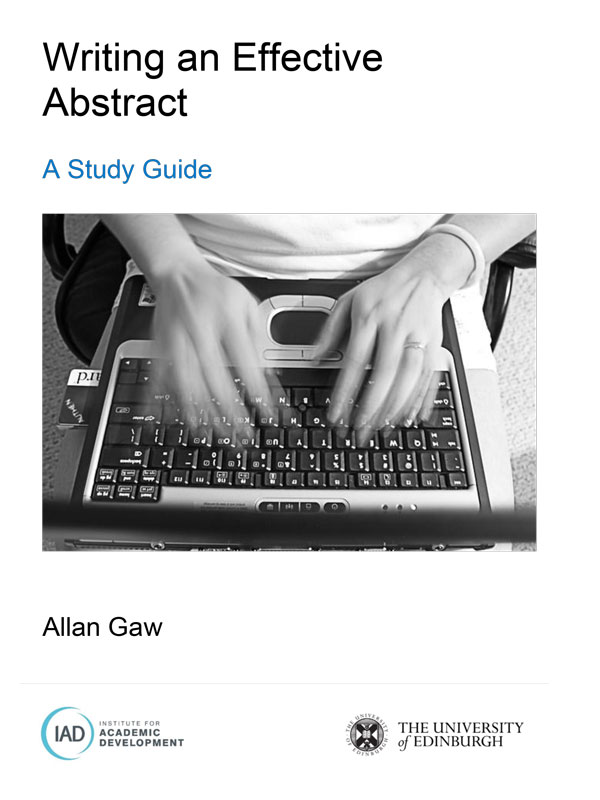INTRODUCTION
Thirty-five years ago I wrote my first abstract. I submitted it, full of hope, to the UK Annual Conference in my subject area and, lo and behold, it was accepted. I duly prepared my poster presentation and attended the conference. While standing beside my poster, proud but a little nervous, I noticed one of the most distinguished researchers in my field working his way along the line of posters. He paused at mine, read it, asked me a couple of questions and then as he moved on, he nodded and said, “Nice work”. To say I was elated would have been an understatement. That abstract had been my ticket to the conference and that experience was the key that opened the door to an academic career.
The ability to write a good abstract is a key professional skill. Anyone wishing to submit a paper to either a journal or a conference will be required to produce a clear, concise and convincing summary of their work. This summary, or abstract, will be used to judge the work and will frequently be the only component of the written work, poster display or oral presentation that is widely read. The brevity of the writing, however, sometimes leads writers to the mistaken conclusion that little effort is required when writing an abstract. On the contrary, abstract writing arguably takes more skill, and proportionately more time, than the main text. In this Study Guide, I will look at the particular challenges posed by abstract writing, and I will lay out a simple strategy for writing effective abstracts every time.



